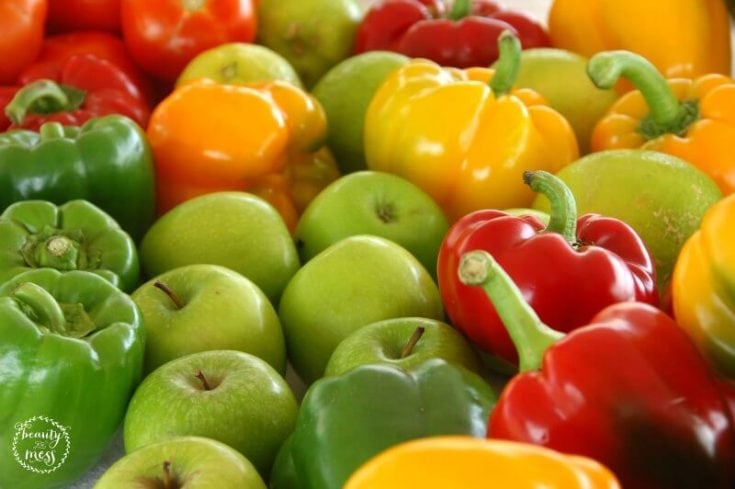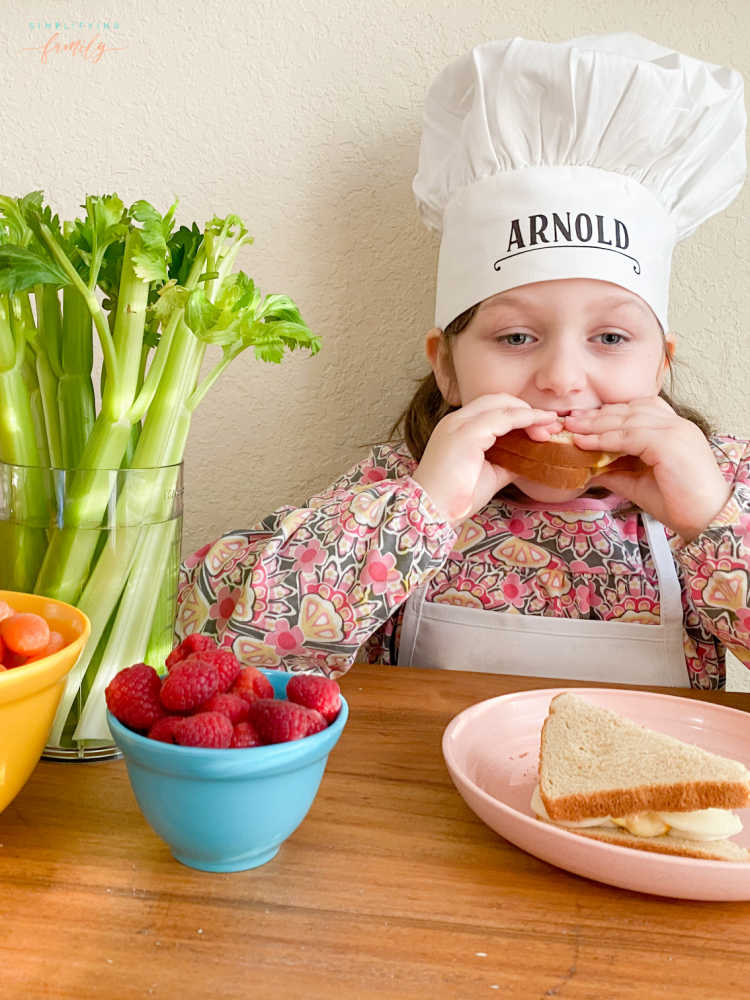12 Dirty Dozen Foods to Buy Organic and An Easy Fruit and Vegetable Soak Recipe
When it comes to healthy foods, produce is at the top of the list.
With modern farming though, pesticide contamination is a major issue for our health. Chemicals that protect crops from bugs and increase the yield of food produced from each crop, are actually detrimental to our health.
The dirty dozen are the top crops to have harsh chemicals that adversely affect your health.
Whenever possible, the foods on the Dirty Dozen list should be purchased organic.
So which foods are on the Dirty Dozen list? Read on and find out.
The Dirty Dozen List

1. Apples.
While great for your health, apples can be packed with pesticides and arsenic. Organic apples may not look as pretty but they taste great. We still wash them with Thieves Fruit and Vegetable Cleaner or mix vinegar and water in a sink to strip the apples of nasty pesticides.
2. Strawberries.
Strawberries grow mold incredibly fast. Because of this, farmers often spray them with fungicides. You don’t want to eat that.
3. Grapes.
Grapes are packed with hundreds of antioxidants, including vitamins C and K and beta-carotene, which help rid the body of pesky free radicals. But conventionally grown grapes are also dripping in pesticides that fight against your health.
4. Celery.
Celery ranks at the top of the dirty dozen due to continuously having the highest concentration of pesticides inside the vegetable.
5. Peaches.
Peaches are a favorite fruit for many. They also have some of the highest concentrations of pesticides, making buying them organic, whenever possible, an option.
6. Spinach.
You may have noticed a rise in organic Spinach being available in your local supermarket. It is because of the high concentrations of residue in this leafy vegetable. Grab the organic, and enjoy an iron-packed meal.
7. Bell peppers.
When picking a vegetable to cook with, bell peppers are packed with antioxidants. They are also perfect for growing organically at home! Growing your own garden is the perfect way to reduce your pesticide exposure and save a little money.
8. Nectarines.
Often imported, nectarines are one of the most contaminated fruits that grow on trees.
9. Cherry tomatoes.
The small size of cherry tomatoes, leaves them with more surface area to be covered in pesticide residue.
10. Snap peas.
Imported snap peas are often found to be high in pesticides.
11. Potatoes.
Most of the nutrition value in potatoes can be found in the skin. Sadly, this is where you are more likely to find the most pesticides due to the chemicals that seep deep into the ground.
12. Blueberries.
This superfood is jam-packed with antioxidants, but when conventionally grown they are covered in pesticide residue. Organic blueberries taste sweeter and better. Check for a local you-pick farm and make memories with a fun family outing!
The good news is that many of these things you can grow yourself even in limited space.
Do we always buy organic?
No.
Sometimes our budget doesn’t allow a grocery cart full of organic produce, unfortunately. Whether we are buying organic or conventional, we always make sure to soak our fruits and vegetables.

Natural Fruit and Vegetable Soak
- 1⁄4 cup vinegar
- 2 tablespoons salt
- Fill a clean sink with cold water and add in vinegar and salt. Swish the mixture around with your hands to dissolve the salt and mix it all together.
- Place the fruit an vegetables in the sink and allow to sit for 25-30 minutes.
- Rinse under cold water and dry.
The vinegar cleans the fruit and vegetables while the salt draws out any little bugs, dirt, and other small unwanted things from the produce. It also will remove some of the wax, which is an added benefit.
Check out Planning & Designing the Family Food Garden + Printable Planner by Isis Loran, to learn more about how you can help keep your family healthy and cut costs by growing your own foods.







